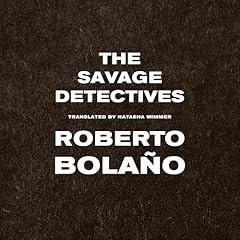
How to Be Alone
Essays
No se pudo agregar al carrito
Add to Cart failed.
Error al Agregar a Lista de Deseos.
Error al eliminar de la lista de deseos.
Error al añadir a tu biblioteca
Error al seguir el podcast
Error al dejar de seguir el podcast
 Exclusivo para miembros Prime: ¿Nuevo en Audible? Obtén 2 audiolibros gratis con tu prueba.
Exclusivo para miembros Prime: ¿Nuevo en Audible? Obtén 2 audiolibros gratis con tu prueba.Compra ahora por $17.86
-
Narrado por:
-
Jonathan Franzen
-
Brian d'Arcy James
-
De:
-
Jonathan Franzen
Passionate, strong-minded nonfiction from the National Book Award-winning author of The Corrections
Jonathan Franzen's The Corrections was the best-loved and most-written-about novel of 2001. Nearly every in-depth review of it discussed what became known as "The Harper's Essay," Franzen's controversial 1996 investigation of the fate of the American novel. This essay is reprinted for the first time in How to be Alone, along with the personal essays and the dead-on reportage that earned Franzen a wide readership before the success of The Corrections. Although his subjects range from the sex-advice industry to the way a supermax prison works, each piece wrestles with familiar themes of Franzen's writing: the erosion of civic life and private dignity and the hidden persistence of loneliness in postmodern, imperial America. Recent pieces include a moving essay on his father's stuggle with Alzheimer's disease (which has already been reprinted around the world) and a rueful account of Franzen's brief tenure as an Oprah Winfrey author.
As a collection, these essays record what Franzen calls "a movement away from an angry and frightened isolation toward an acceptance--even a celebration--of being a reader and a writer." At the same time they show the wry distrust of the claims of technology and psychology, the love-hate relationship with consumerism, and the subversive belief in the tragic shape of the individual life that help make Franzen one of our sharpest, toughest, and most entertaining social critics.
Los oyentes también disfrutaron:




















Las personas que vieron esto también vieron:


















A Fellow Traveler
Se ha producido un error. Vuelve a intentarlo dentro de unos minutos.
Wonderful essays
Se ha producido un error. Vuelve a intentarlo dentro de unos minutos.
fun to hear what goes on in the mind of Mr.Franzen
Se ha producido un error. Vuelve a intentarlo dentro de unos minutos.
Brilliant essays, awful audio formatting
Se ha producido un error. Vuelve a intentarlo dentro de unos minutos.
The first story is the best
Se ha producido un error. Vuelve a intentarlo dentro de unos minutos.


